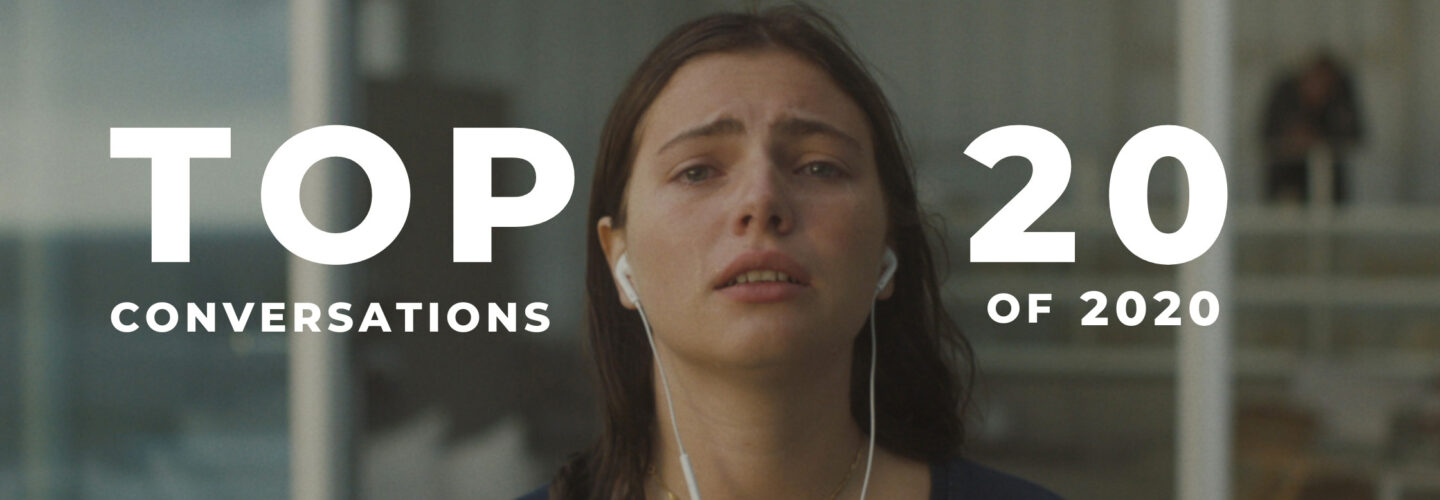
I think you’ll agree with us when we say: Goodbye 2020 and good riddance. Don’t let the door hit you on the way out! No matter how you personally fared across the tortuously long months of this past year, there’s no denying that it was a particularly difficult one for many of us. Yet despite, or rather because of that, the importance of film as a means of helping us to hold onto our sanity was thrown into sharp relief as we binged our way through various lockdowns while sheltering in place. Here at DN we were fortunate enough to be able to continue our mission of curation and conversation, speaking to filmmakers across the globe about their craft. What we found is that in a period when the world literally came to a standstill, they continued to create astonishing, enlightening and moving pieces of work which made the days a little brighter or just got us out of our heads for the duration of their running time. What follows are 20 highlights from Directors Notes filmmaker conversations of 2020 which are most definitely worth a revisit.
How “Personal Experience” Inspired Anushka Naanayakkara to Create a Stop-Motion Love Story Made From Wool
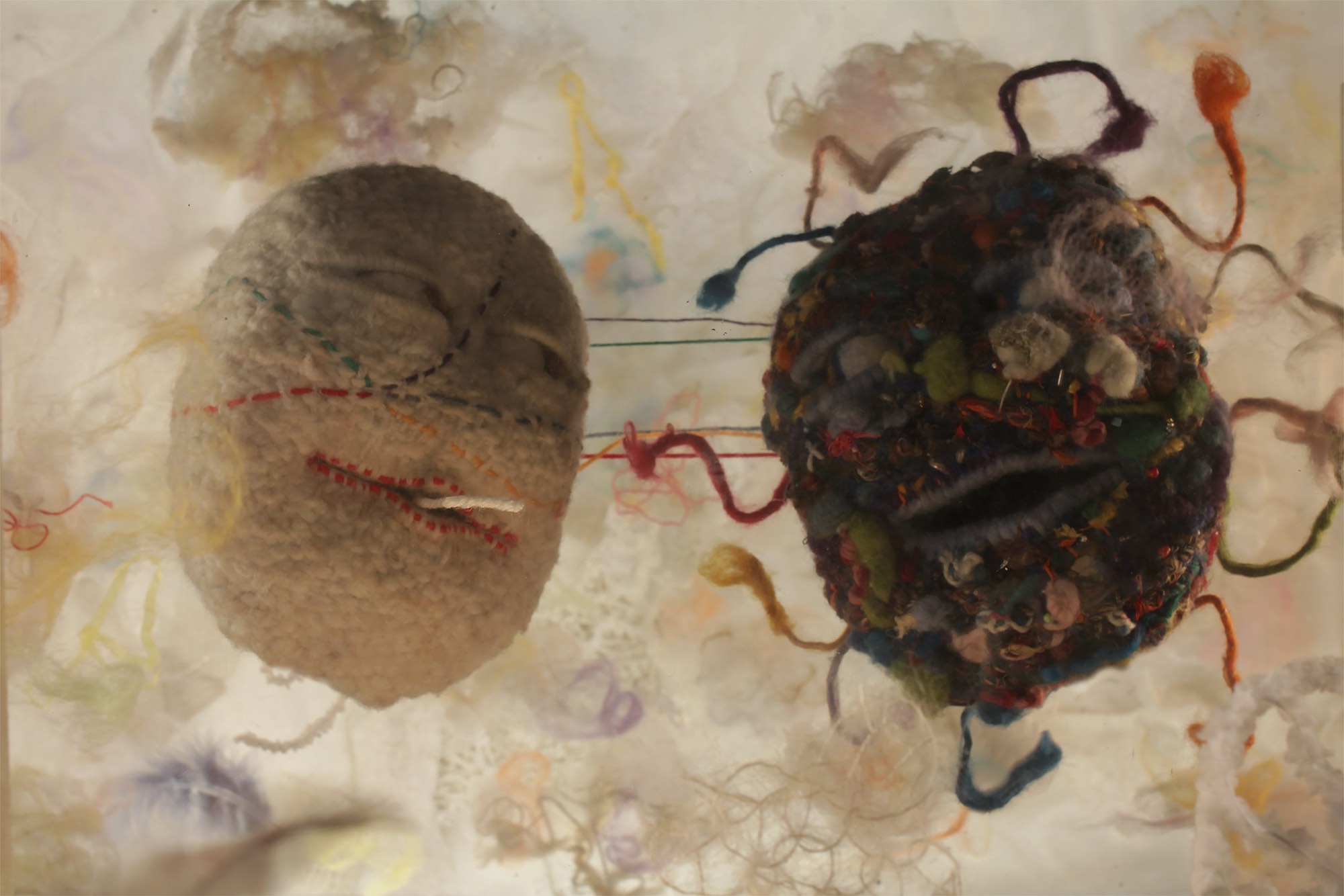
“When we first wrote the story it had a happy ending but during production things changed.”
The Directing Animation course at the National Film and Television School in the UK has developed a reputation for producing some of the most impressive, prestigious animated shorts in recent years. Picking-up five BAFTA awards in the space of five years, the short films coming out the school come with a stamp of quality making them impossible to ignore. One of the short films cementing this reputation is Anushka Naanayakkara’s 2017 BAFTA winning film A Love Story– a short that manages to portray the emotional complexities of a relationship, in just over seven minutes. We spoke to Naanayakkara about her incredible film and why she chose to animate in wool. [read here]
Mark Jenkin on the Journey and Success of ‘Bait’ His BAFTA-Nominated Breakthrough Feature
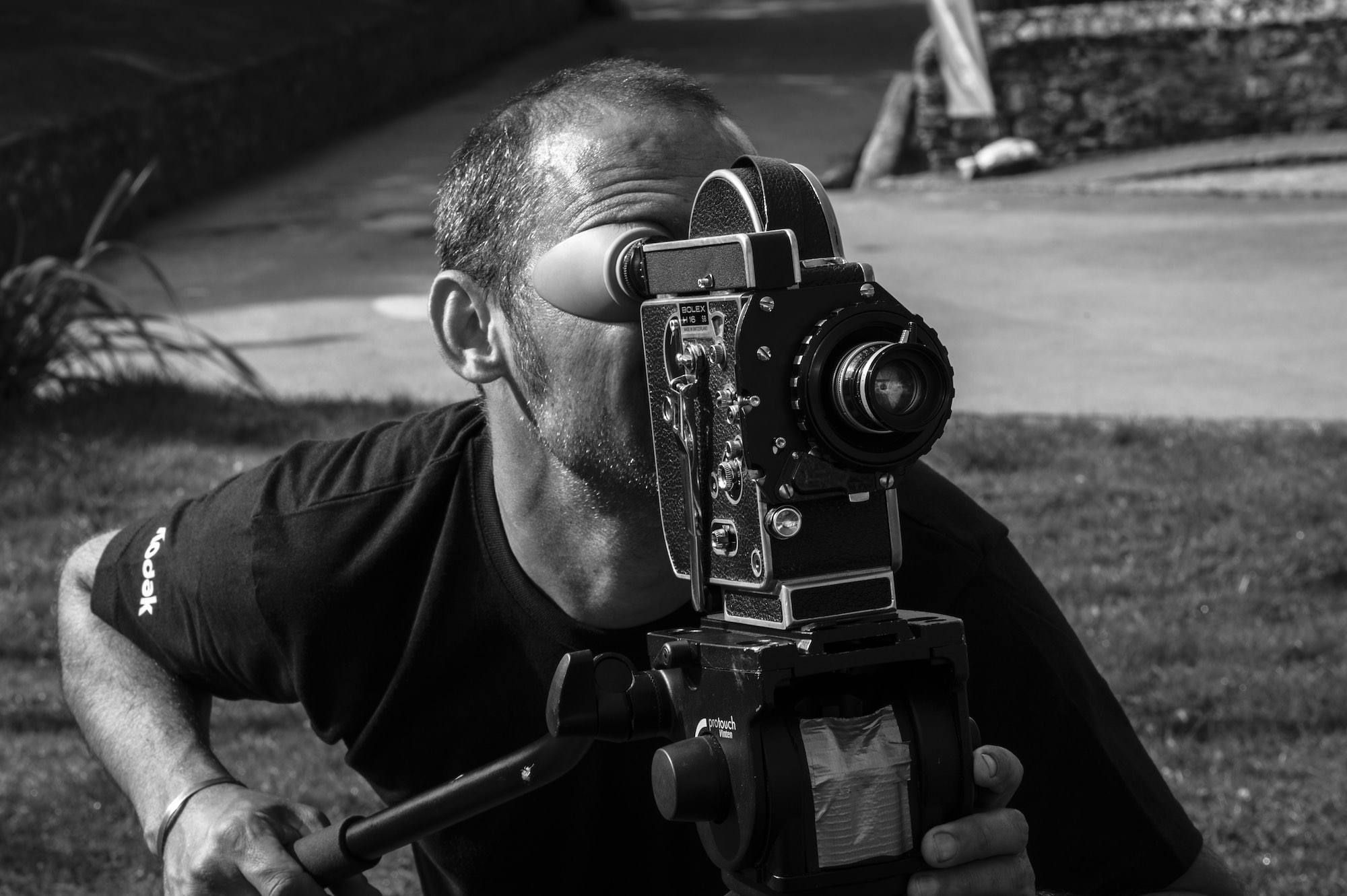
“The limitations are the key to the form anyway, without them the work wouldn’t exist.”
Since Bait premiered at Berlinale last year to critical acclaim, Director Mark Jenkin has found himself on an unexpected journey with the film. Bait is a 16mm, black and white, hand-processed, post-synced feature film about a Cornish fisherman struggling to face the evolving societal landscape that is slowly encroaching towards him. It’s the kind of film we’re told isn’t commercially viable or that audiences won’t be able to connect with, yet looking at the numbers Bait did in cinemas last year, it’s clear that isn’t the case. Bait has resonated with audiences so much that it’s now nominated for a BAFTA alongside the likes of 1917 and Rocketman. Jenkin, who we’re proud to count as a long-time DN alum, is welcomed back to our pages today to converse about his filmmaking journey, beginning with Bait’s latest venture; a presentation of the film accompanied with a live score performed by Gwenno. [read here]
An Isolated Group of Privileged Teens Weather a World Ending Virus in Jakob Rørvik’s ‘Apocalypse Norway’
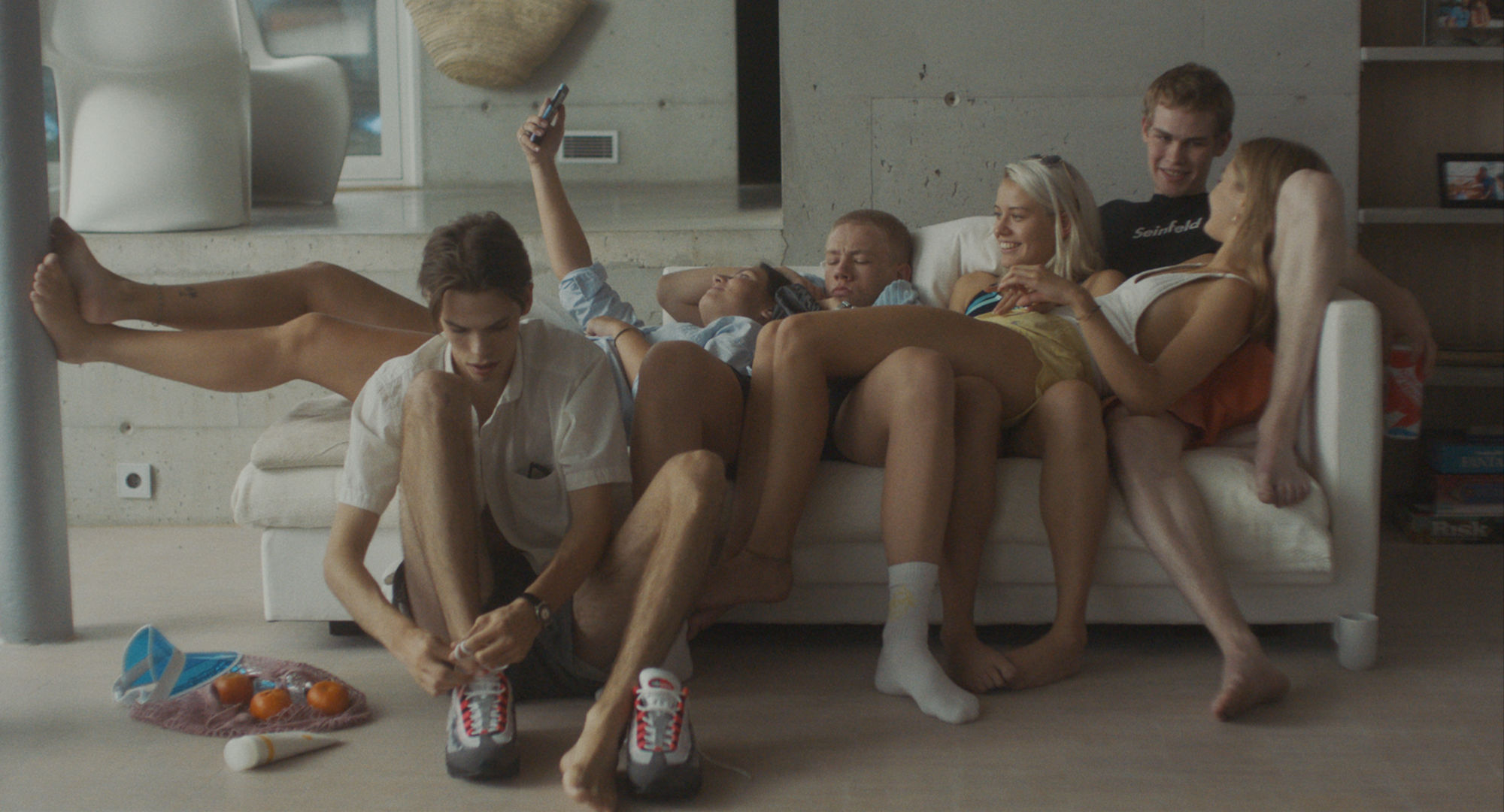
“We worked quite a lot on figuring out how little information we needed in any given scene.”
Although galvanised by concerns about the worrying state of the world today contrasted by a perceived immunity from global turbulence in his native Norway, little could Jakob Rørvik have known just how eerily relevant his end of days short Apocalypse Norway would be. The story of an isolated group of privileged holidaying teens who witness the end of the world through social media while also documenting their own experiences, Rørvik’s drama is a film which feels custom made for the period of uncertainty and societal shock the coronavirus pandemic has forced into all our lives. Further demonstrating his proficiency for crafting compelling characters and narratives within close quarters (as we saw in his time spanning break up make up short Nothing Ever Really Ends) DN sat down with Rørvik to gain a behind the scenes perspective of his prescient look at our current worldwide fears. [read here]
Politics & Religion Conspire to Bequeath Eternal Youth on the Powerful in Andzej Gavriss’ ‘You’re Born’
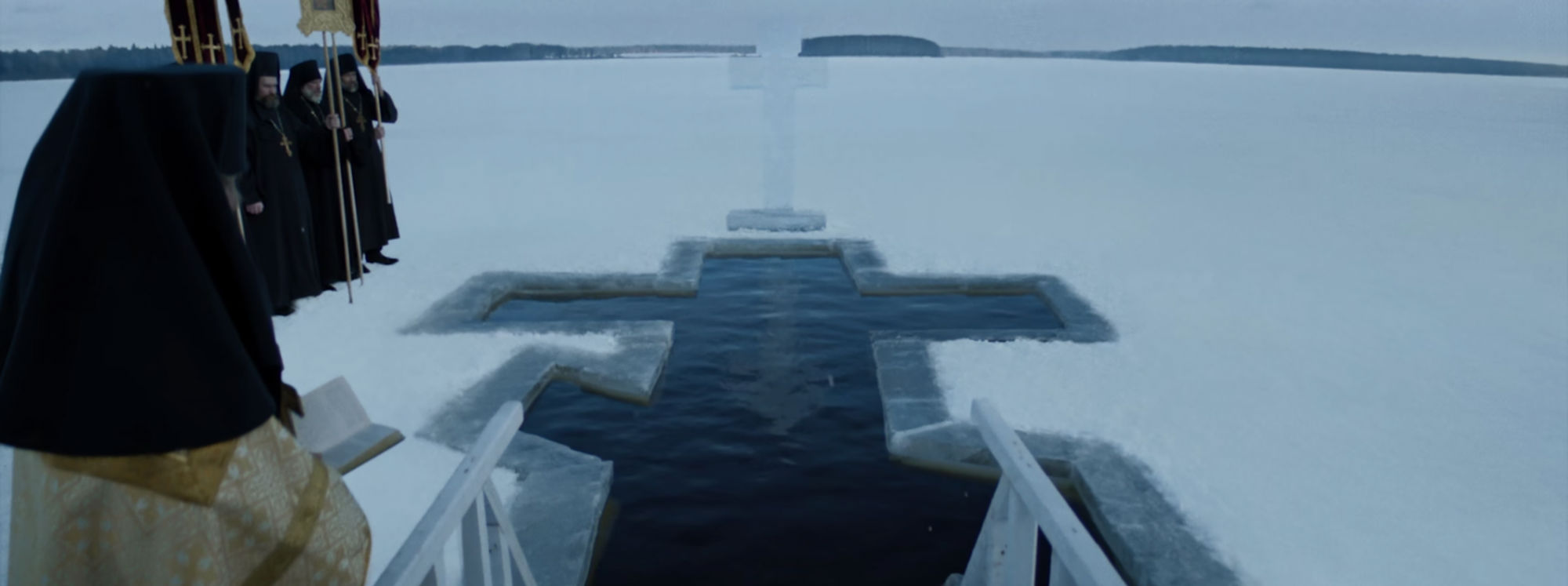
“The first problem we faced was finding thick enough ice that could hold the whole crew.”
Back in 2018 Writer/Director Andzej Gavriss introduced us to the sounds of Aigel through his fever dream promo 1190. Today we gladly hand the reins over to Gavriss once again to discover how the alluring imagery of Russian Orthodox ice-water baptisms inspired You’re Born – his latest music video for the electro hip hop duo, and a project whose best laid production plans devolved into a race against melting ice and rising sub-zero water. [read here]
André Chocron’s Mind-Bending ‘Chronos’ is an Ingeniously Plotted Time-Travel Drama

“One of the first things you have to do when you work with time travel is decide how it works in your universe.”
Time is a flat circle in André Chocron’s Chronos. Marking his first narrative short after a career playing around with different aspects of time in music videos for London Grammar and Michael Paskalev, Chronos is a new and ambitious departure for the Norwegian director. We talked to him about the film’s one-take structure, the rules of time travel and the added benefit of shooting on film! [read here]
Morgan Krantz Sees an Erotic Affair Unfold Either Side of a High-Rise Office Window in ‘Squeegee’
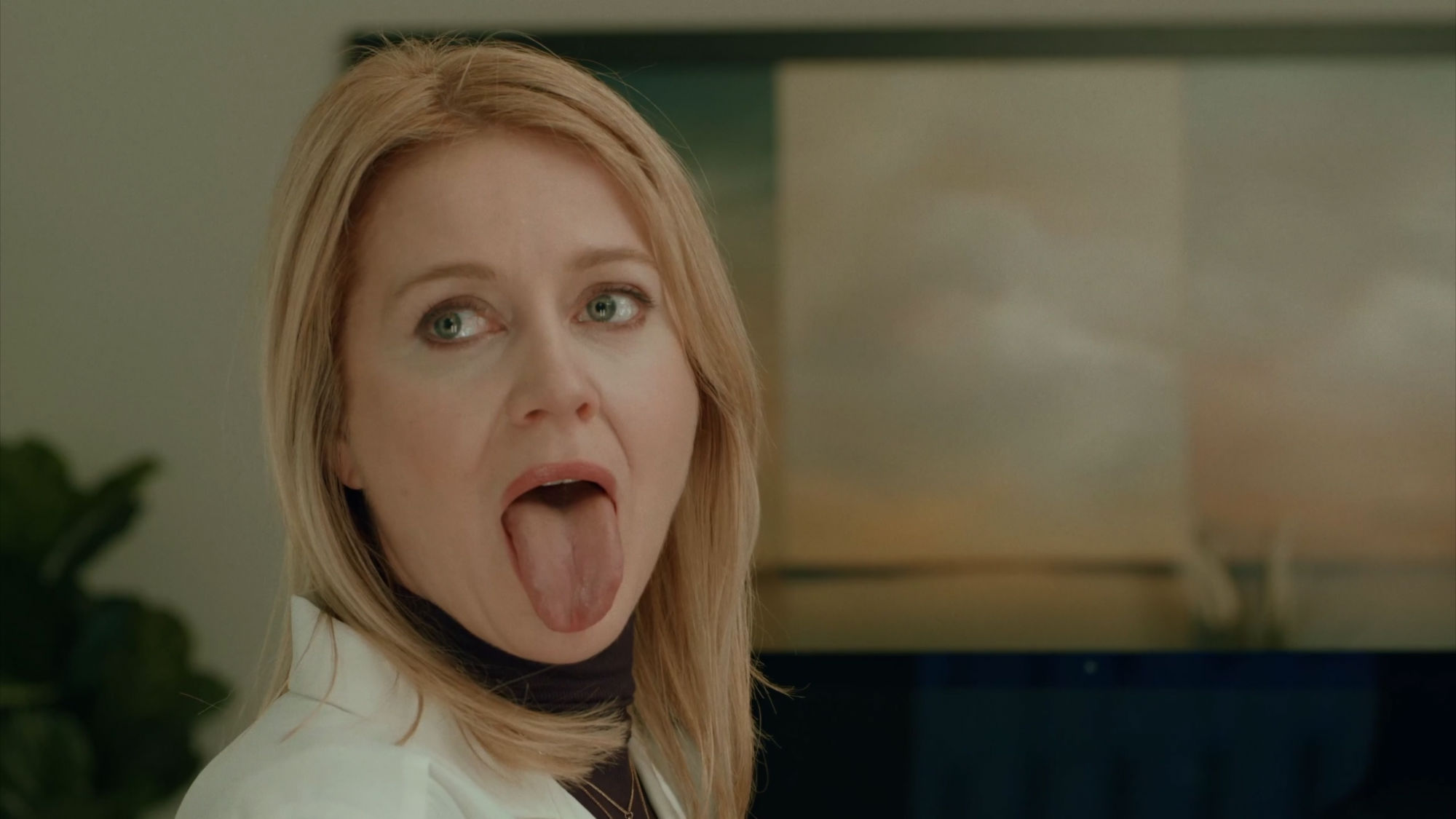
“I saw two people smushed against the window, panting like animals.”
The spontaneity of romance will never cease to be surprising. Such is the case with Morgan Krantz’s erotic comedy Squeegee, which is the story of a CEO who has a sexual encounter with the window cleaner of her high-rise office block. It’s a rendezvous which unfolds either side of a window hundreds of feet above the ground in a series of hilarious, tense and carnal gestures. DN caught up with Krantz to discuss the production behind his vision of a steamy liaison. [read here]
Adi Halfin Remotely Directs Dancers in Lockdown for Asaf Avidan’s ‘Earth Odyssey’
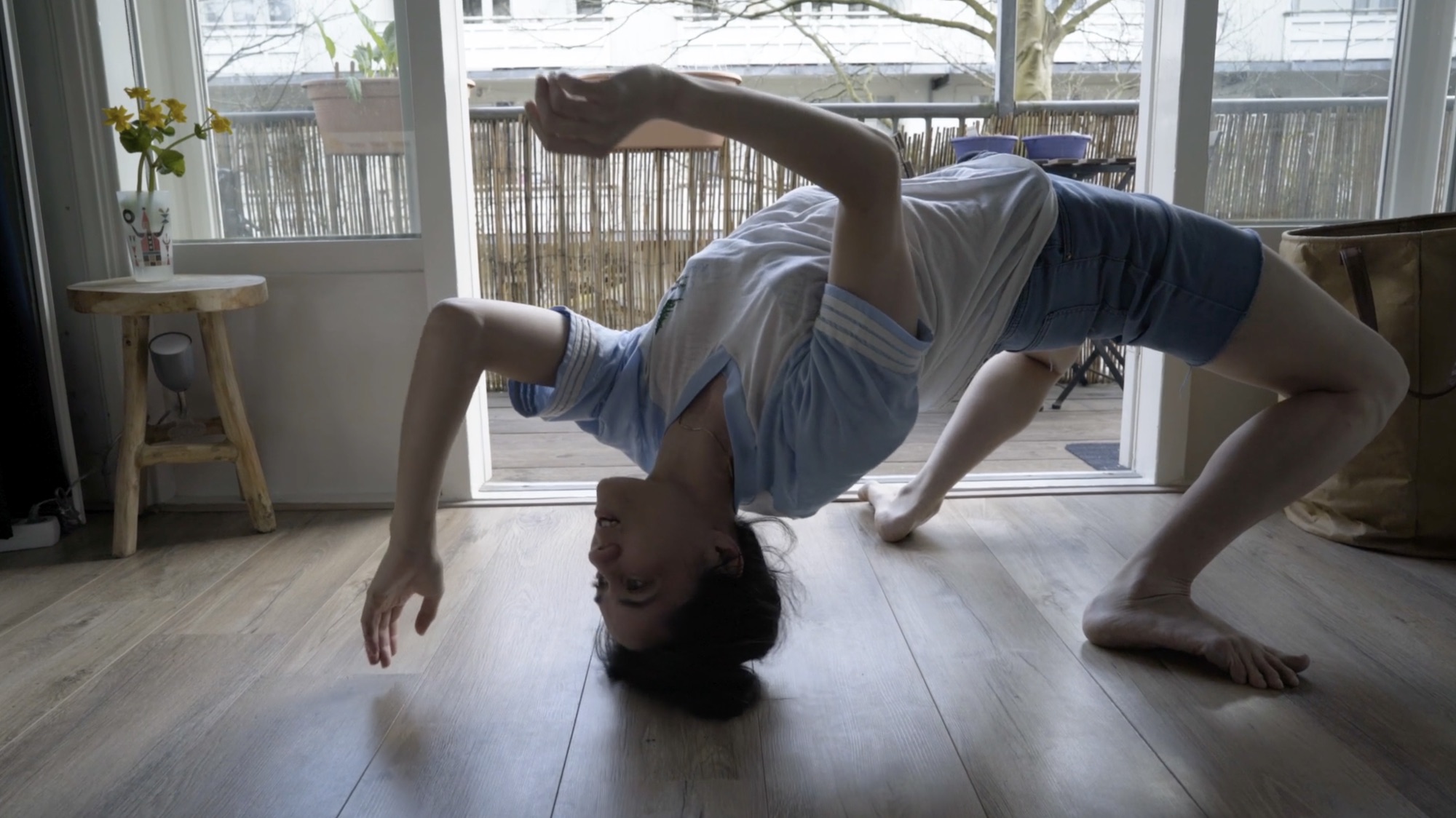
“It was a loose and quick reaction to something that was happening in the world so we had to act fast.”
DN regular Adi Halfin joins us today with Earth Odyssey, a music video born out of a cancelled shoot that was stopped in its tracks by the coronavirus outbreak. It sees dancers from all over the globe, in lockdown, creating individual choreography to Asaf Avidan’s unique brand of pop-folk. In doing so, Halfin has created a hopeful vision that expresses the unity and togetherness shown by so many people around the planet during the present situation. Accompanying the video today is a chat with Halfin, who tells us about the instinctual genesis of Earth Odyssey and its rapid two week turnaround. [read here]
Justine Raczkiewicz Forewarns the Dangers of Extreme Cuisine in Darkly Absurdist Short ‘Waste’

“I’m more interested in the visual over the verbal and believe so much emotion and subtext can be conveyed through gesture and blocking.”
Turning her focus to directing, veteran horror Producer Justine Raczkiewicz embraces the narrative possibilities of the darkly absurd in Waste. Adapted from a short story written by Amelia Grey, Waste is a satirical take on the dangers of consumption and unsatiated curiosity which serves up a deliciously grisly dilemma of the heart. DN caught up with Raczkiewicz for an extensive conversation about how years producing horror provided to be the perfect grounding for her shift into directing. [read here]
EunJu Ara Choi Animates the Testimony of a Korean Sex Worker in Poetic and Poignant ‘Happy Ending’
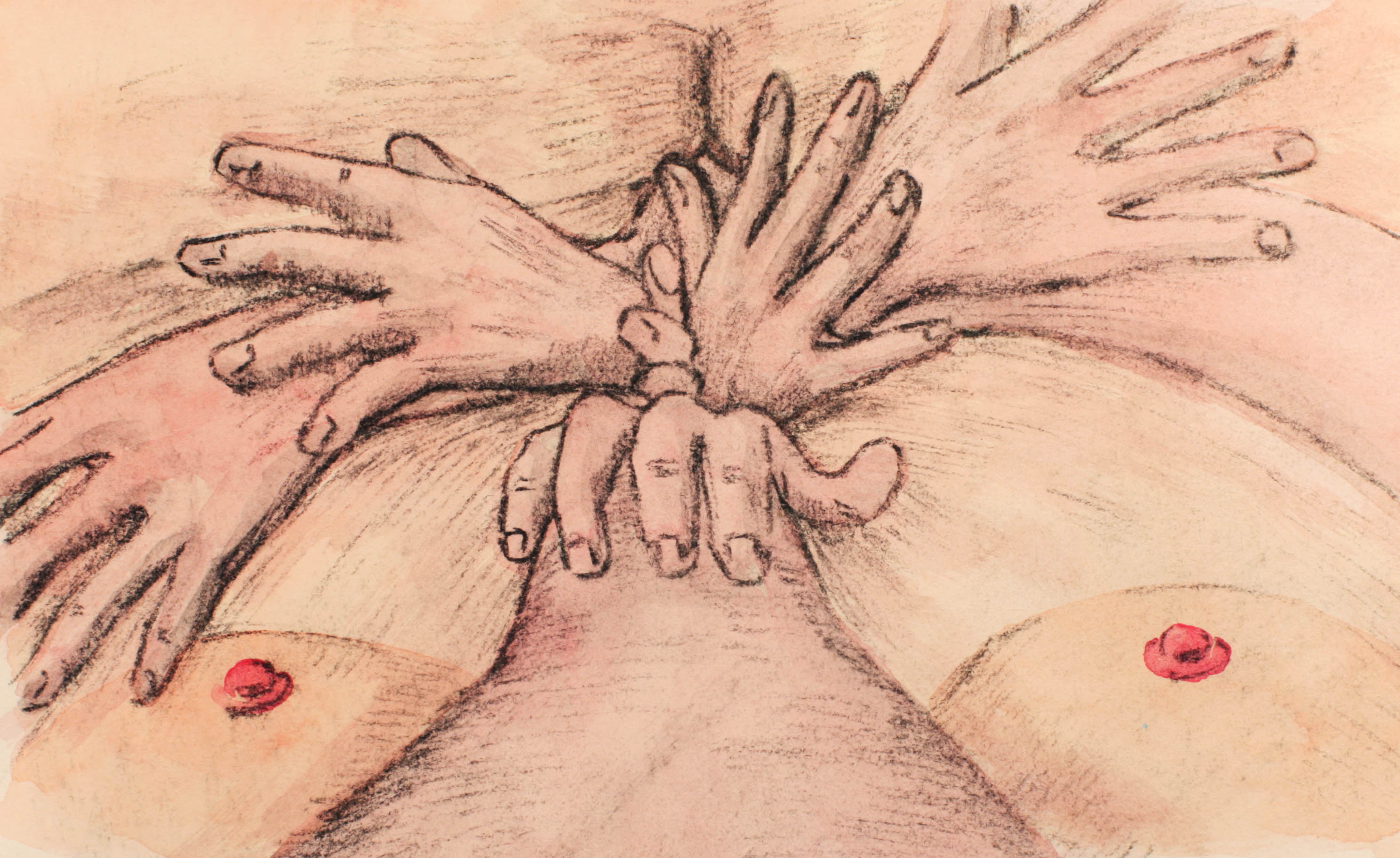
“My big challenge was illustrating her battle with fragile emotions and sexuality.”
Deeply moving and introspective, Happy Ending depicts the experience of a sex worker using a unique poetic language: fragile, sensual and spearheaded with emotional and physical pain. Directed by EunJu Choi, the four minute hand-drawn animation is a poignant tale, based on an anonymous testimony of a Korean prostitute, which communicates immense depth with just a few simple words and plenty of style. Fluid motion in a tranquil palette guides us through a raucous brothel, then straight inside the body and mind of the woman, forcing us to endure the experience of being desired, used and discarded ourselves. DN caught up with Choi to talk about controversial themes, erotic sound design, finding a balanced visual language and plenty more. [read here]
A Young Russian Girl Plays Translator at Her Parent-Teacher Conference in Gosha Shapiro’s Drama ‘Lena’

“I received a very important piece of advice with respect to working with kids: to treat them like they know more than you.”
Gosha Shapiro’s Lena is great example of filmmaking which repositions the traditional immigrant narrative. More often than not, films created about the immigrant experience focus specifically on the physical process of crossing borders. This isn’t to say those films can’t be successful in their own right, but Shapiro evolves this representation a step further. Lena tackles the personal, psychological and emotional factors of the immigrant experience in a fully-rounded story full of humour and tension. It’s a really impressive work of debut filmmaking, and DN was excited to catch up with Shapiro to talk about his refreshing approach to an important subject matter. [read here]
How Lenny Abrahamson Transformed Sally Rooney’s Best Selling Novel Into the Record-Breaking TV Event of the Year
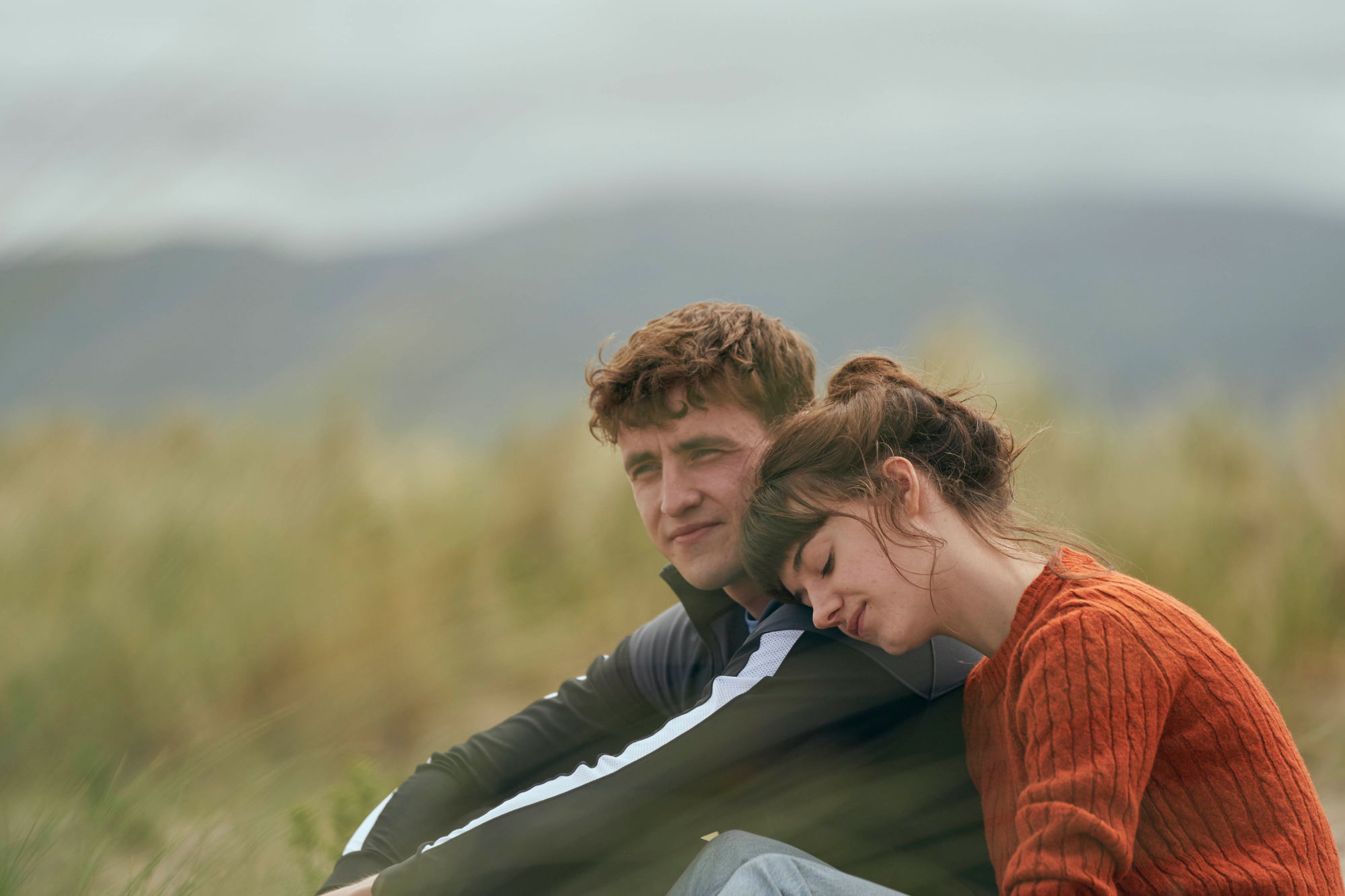
“Every world, every group of people, every character contains an infinity of richness.”
While the combination of Sally Rooney’s best selling novel with the talents of celebrated filmmaker Lenny Abrahamson clearly promised the potential for quality content, few people (including the Oscar nominated director himself) could have anticipated what an audience and critical juggernaut the Normal People series would become – surpassing more than 16.2 million requests for the series in its first week of availability on BBC Three. Today Abrahamson makes a most welcome return to DN for an in depth conversation about how this beloved project moved from page to screen, the crucial role of Intimacy Coordinator Ita O’Brien in staging those much-discussed sex scenes and his techniques for making subtle stories land with the emotional resonance they deserve. [read here]
Forthright Poem ‘Wake Up’ Reminds Us That Black Lives Matter Is a Movement, Not a Moment
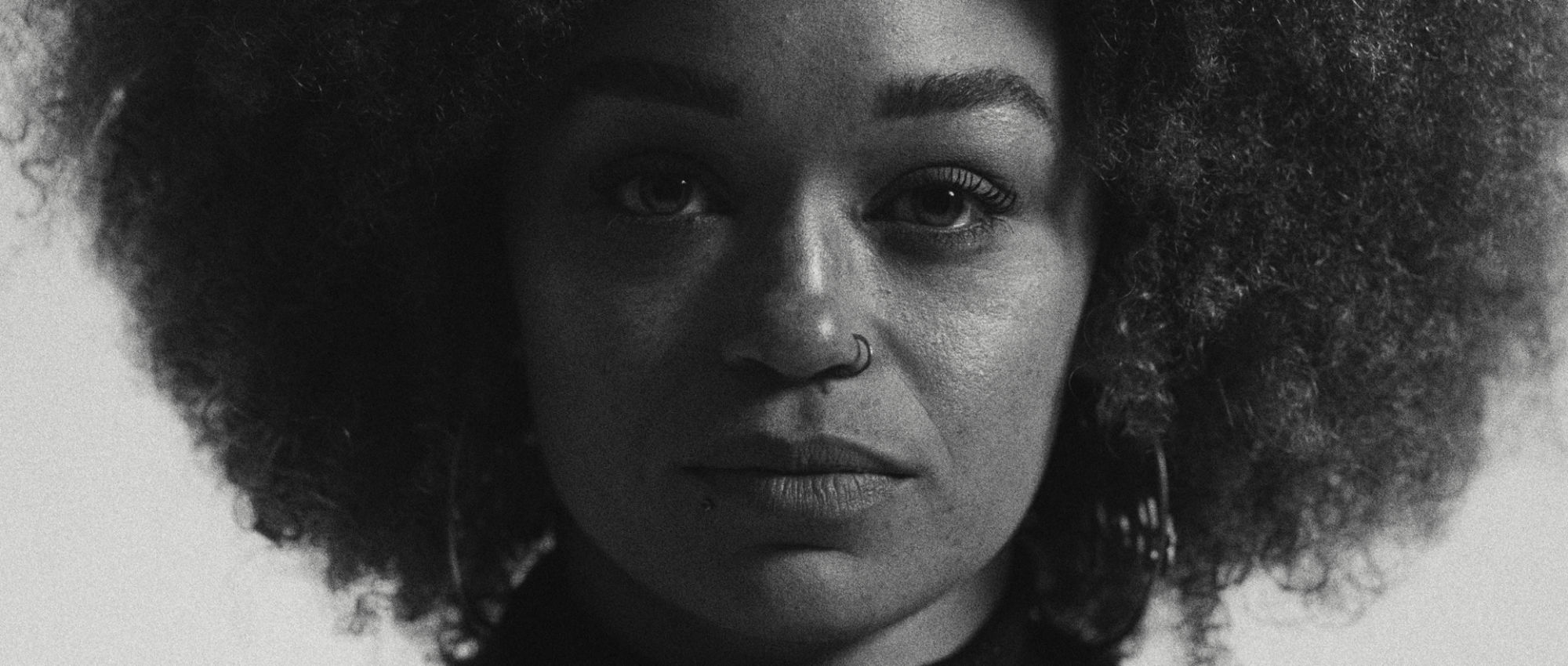
“I didn’t want these bursts of violence and suffering to sit nicely in the edit, they’re meant to be abrasive and jarring.”
Featuring the blistering poetry of AFLO. the poet and Priss Nash, and directed by Brighton based filmmaker Sam Parish-Rookes, Wake Up earnestly questions the resilience of the many who stepped forward as allies of the black community in the wake of George Floyd’s death, only to return to a state of apathy once the hashtags stopped trending. Resolutely performed direct to camera and punctuated with jarring news clips and mobile phone footage, DN is honoured to turn our pages over to the trio today to learn how this powerful collaborative project was conceived and delivered, and why your continued focus on and dedication to the Black Lives Matter movement is most definitely required to enact lasting change. [read here]
Pedro and James Confront Collective Fears of the Covid Crisis in Powerfully Personal Yet Global Doc ‘Pandemic’
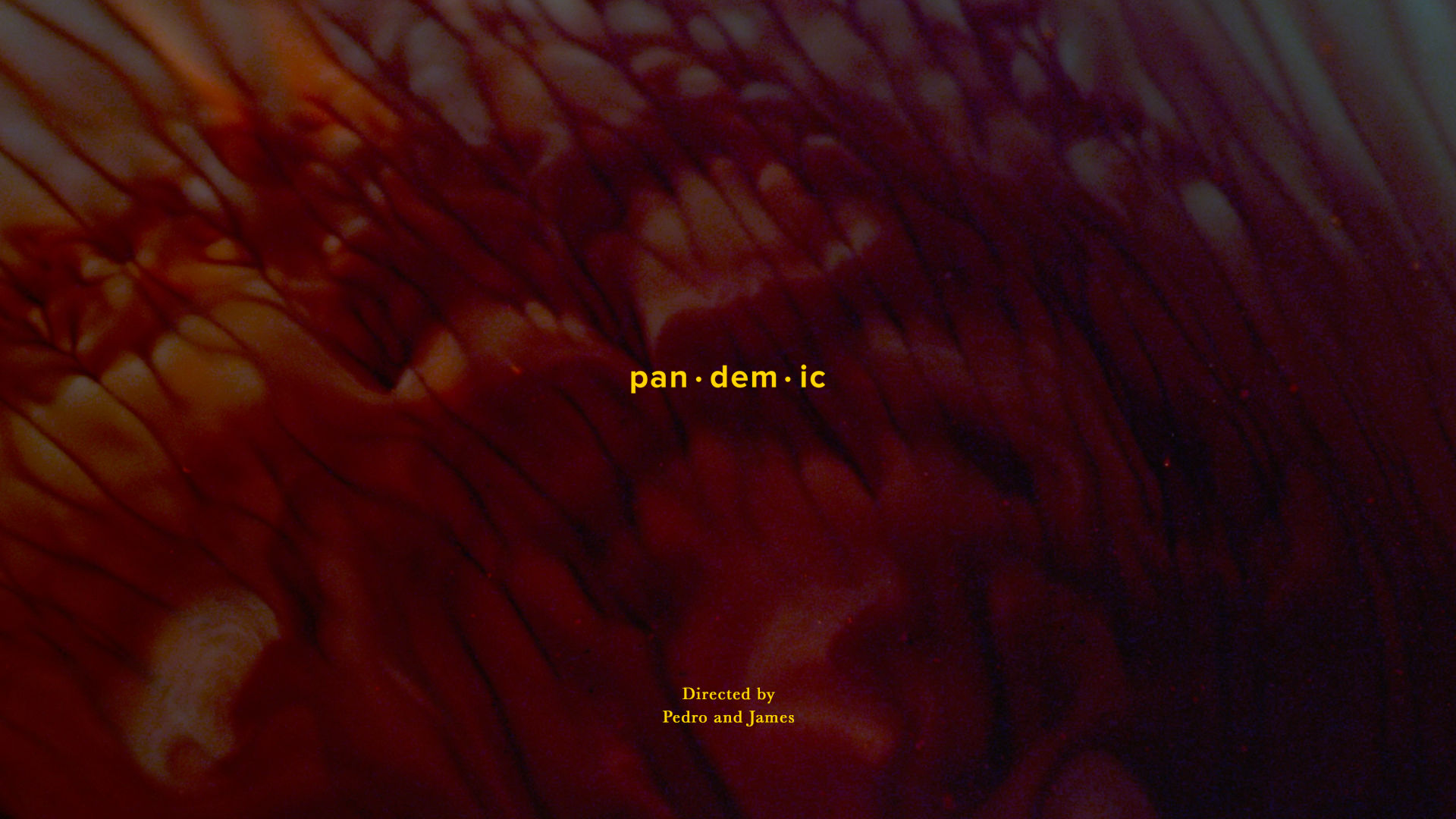
“As difficult as it might be we set out to create a film that would be truthful to the reality we were facing.”
In the wake of a disaster or crisis it is human nature for people to come together, to document and to look for answers. Never have we been more acutely aware of this than in the current global situation we find ourselves. London-based directing duo James Worsley and Pedro de la Fuente, aka Pedro and James, embraced that pull to curate and try to express the ways in which we have all been affected, resulting in heartfelt global documentary Pandemic. Premiering on DN today, Pedro and James reveal how despite being created within the strictures of lockdown they strove to make a film which feels massively expansive, intimately personal and ultimately hopeful. [read here]
Lewis Arnold on Creating Directors Now, An Essential Document for Filmmakers Breaking into the Industry
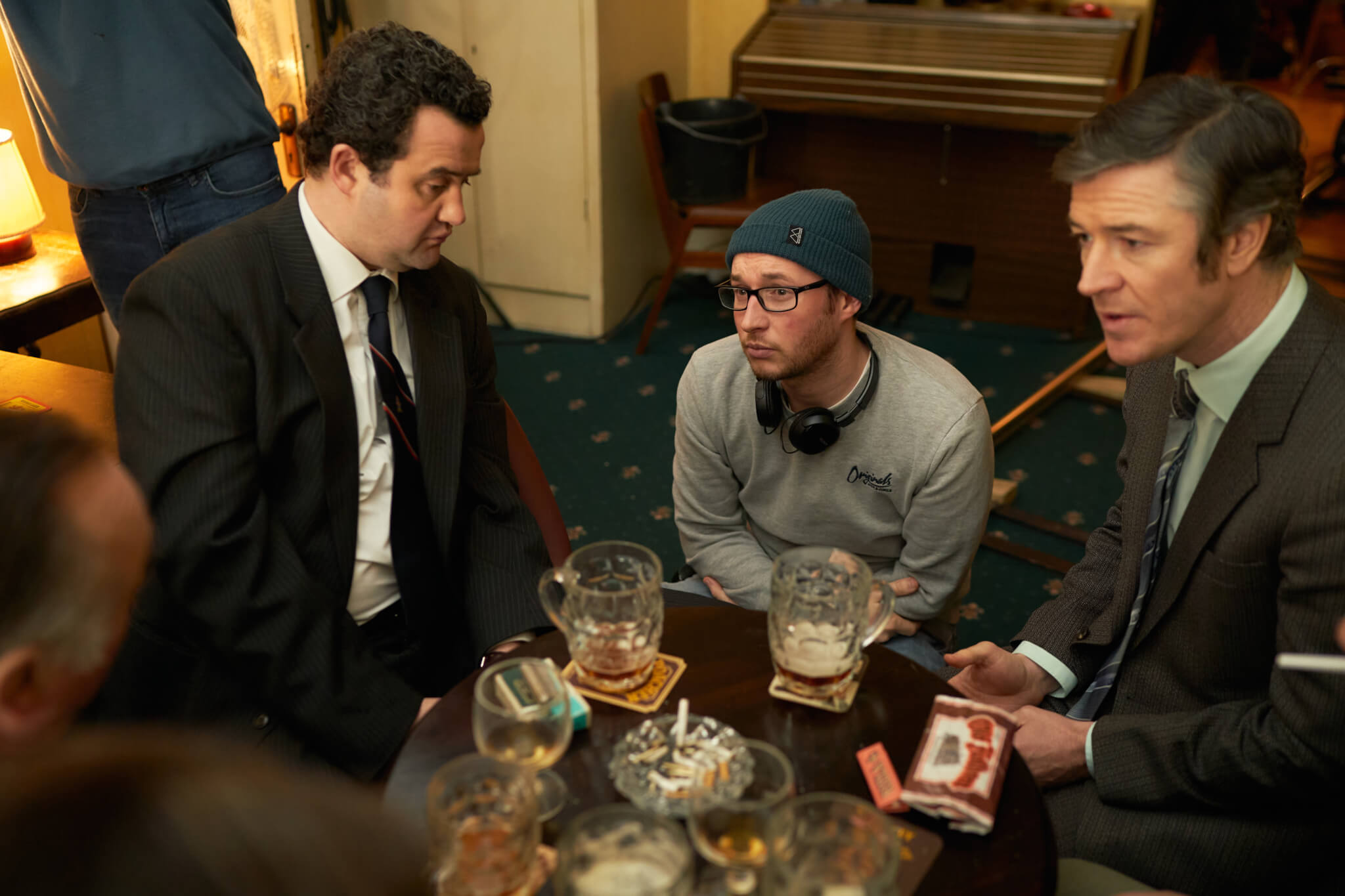
“I think it was really important to get a unique array of voices and disciplines.”
For aspiring filmmakers, getting the right information about breaking into the business can be difficult, especially if your circumstances don’t seem to be the same as anyone else’s. Now with the pandemic wreaking havoc on film productions, young directors have found themselves unable to get even the smallest foot in the door. DN alum and prolific TV Director Lewis Arnold (behind shows such as Banana, Humans, Dark Money and the recently released three-parter Des, starring David Tennant), wanted to help young and aspiring filmmakers, and so embarked on the Herculean task of collating a 105-person strong document drawing on the experiences of a diverse group of directors. Entitled Directors Now, it provides a roadmap to success from those who have already navigated their way through the business. We invited Arnold back to Directors Notes to learn all about his much needed project. [read here]
Matthew Puccini Exposes the True Colours of Queer Intimacy in Sex-Positive Coming of Age Drama ‘Dirty’

“I definitely wanted to show queer sex in a way that felt more honest then what I grew up with, whether that was in film, TV or in porn.”
Film depictions of losing one’s virginity can usually be lumped into two categories: overly romanticised and orgasmic, or comically awkward and clueless – both cataclysmically inaccurate and misleading. And that’s just straight sex. Queer intimacy is much less explored and its portrayal, in both film and literature, has arguably been even more mismanaged and sugar-coated. By exposing the messy reality of it in his latest short Dirty, Director Matthew Puccini has developed a pure snapshot of the true colours of queer sex and in doing so has created a sex-positive and affirming piece of cinematic brilliance. A fact not lost on the Criterion Channel who programmed Dirty alongside Andrew Haigh’s acclaimed feature Weekend. Anchored by two of the most natural and committed performances we’ve seen in a long while, the ten minute drama perfectly captures the rush of falling in lust with raw, sophisticated sensuality and the result is disarmingly compelling. DN caught up with Puccini to chat about the film’s inspiration, process and takeaway. [read here]
Benjamin Ree Reinvents the Documentary Form with the Boundary Breaking ‘The Painter and the Thief’
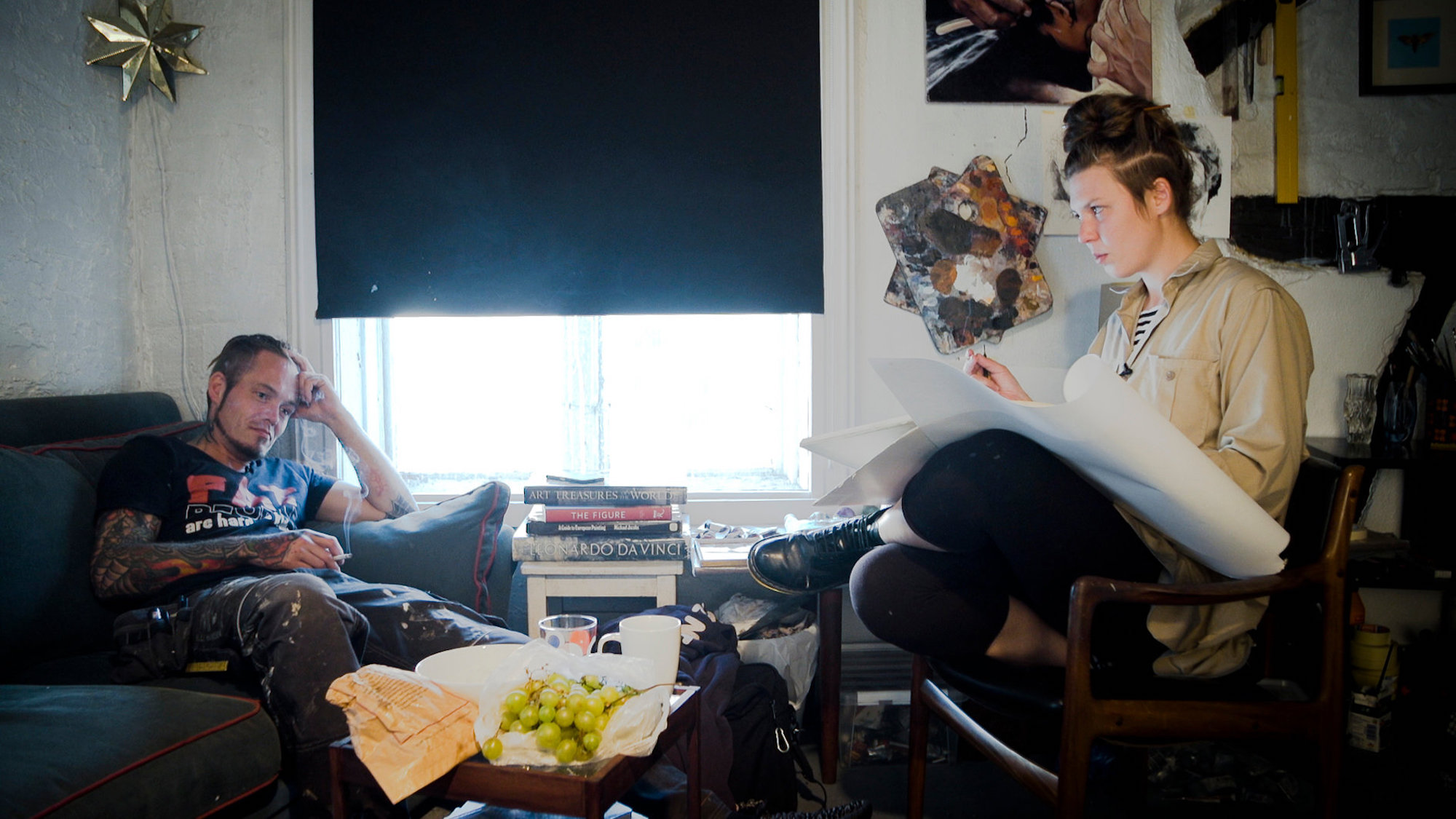
“I think that if you have a unique story, you need a unique structure and form.”
You’re unlikely to see a documentary as strange as The Painter and the Thief released all year. Telling the story of a Czech painter who befriends a Norwegian man who stole her paintings from a gallery in Oslo, it’s a remarkable in-the-moment portrait of forgiveness, empathy and codependency. Employing a series of narrative sleight-of-hands that reinvent documentary form, it also keeps the viewer guessing right until the end. After its UK premiere at the London Film Festival earlier this month (where it won Best Documentary) we caught up with Director Benjamin Ree in his Oslo home to discuss ethics in documentary filmmaking, innovating with form and what ‘being personal’ really means. [read here]
Corentin Leroux’s ‘Grenadine’ Drops Us Into the Stark World of Young Brothers Forced to Fend for Themselves
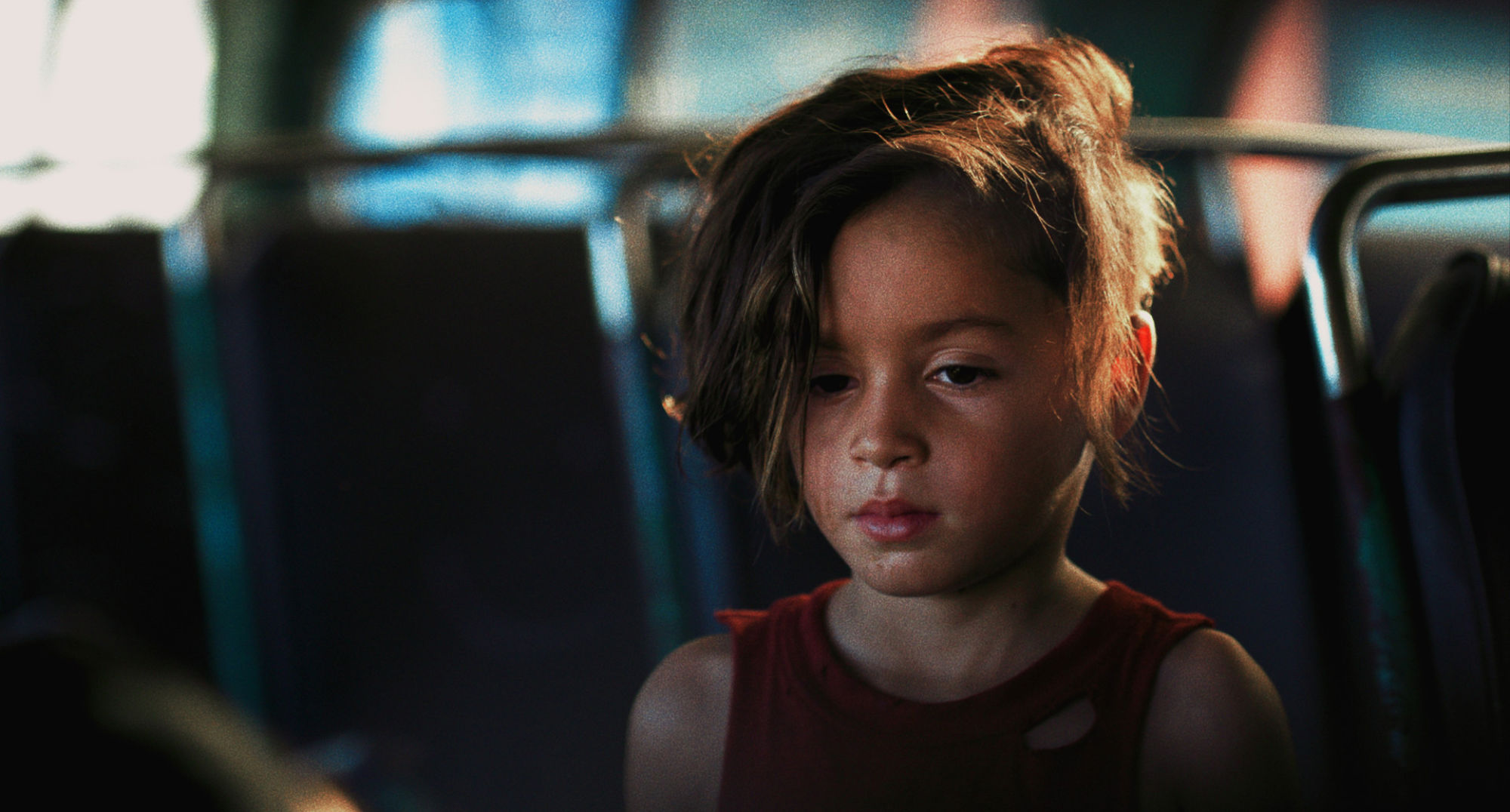
“Layer by layer, the sounds and dialogue compound and get closer until the characters – and the audience – are forced to turn their attention to it.”
Whilst it might be unimaginable for the majority of us to find three young brothers left to survive in an unexplained and perilous actuality, Corentin Leroux’s Grenadine draws from the rich pantheon of films like Harmony Korine’s Gummo to shine a light on brotherly love and the fortitude of youth. Their backstory is left a mystery, only adding to the film’s appeal and lingering presence long after the credits roll. Premiering on our pages today, we delve into the nitty-gritty of Leroux’s potent short to find out more about the world of abandonment and fraternal disarray he brings to such vivid life. [read here]
How Festival Formula Are Streamlining the Festival Circuit for Filmmakers in a Post-COVID Landscape
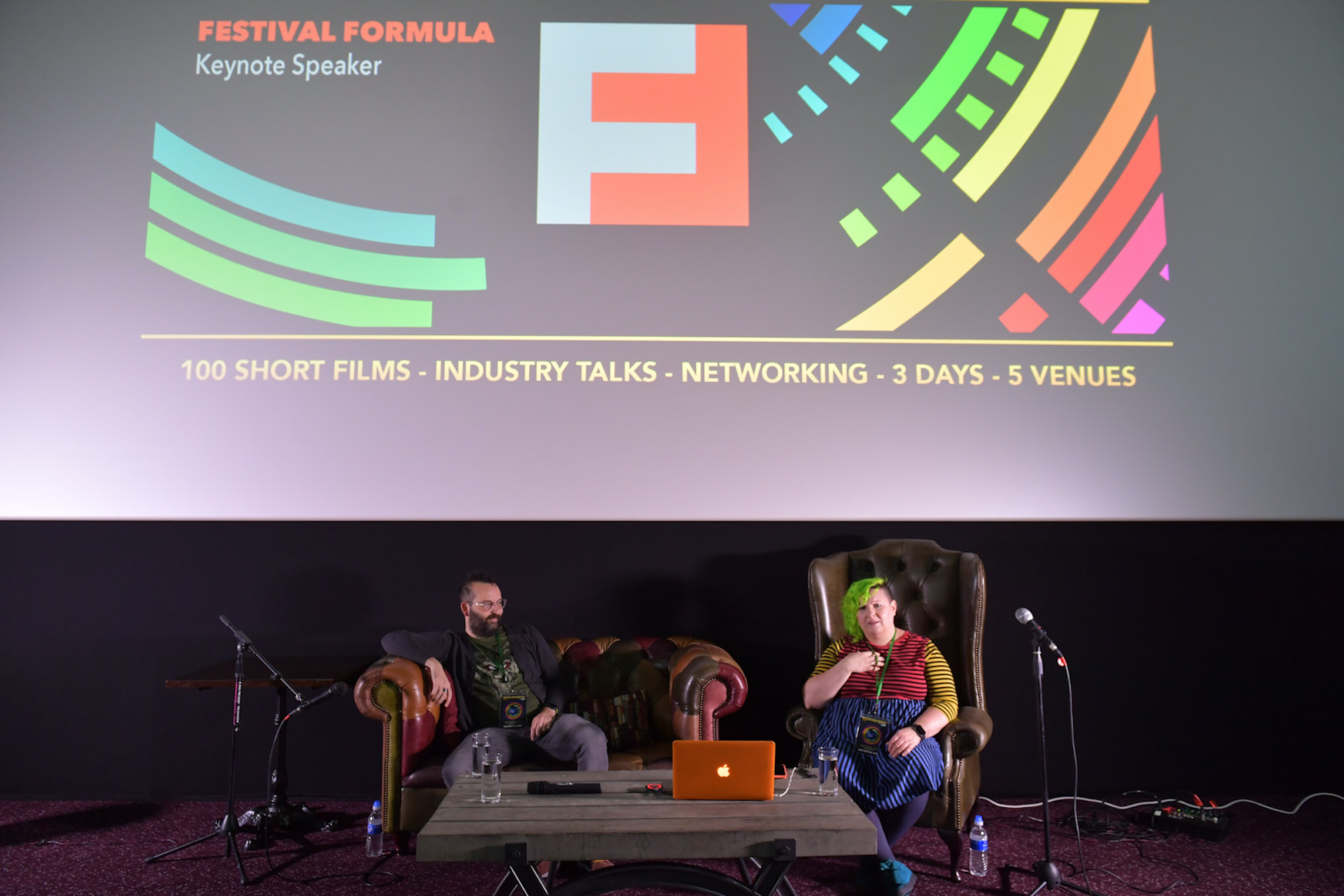
“Allowing a creative to discuss their work as well as having the curator’s perspective is key.”
The culmination of 16 years of festival experience, Festival Formula is a powerful tool for independent filmmakers who wish to navigate the confusion of film festival submissions in the most logical and effective way. Katie McCullough who founded the service appears on our pages today to talk us through the benefits of working with Festival Formula, some of their do’s and don’ts for those embarking on the festival circuit, and the landscape for filmmakers and the industry post-Covid. [read here]
Dane McCusker Explores the Cross-Gender Boundaries of Social Interaction in Highly Fraught Drama ‘The Complex’
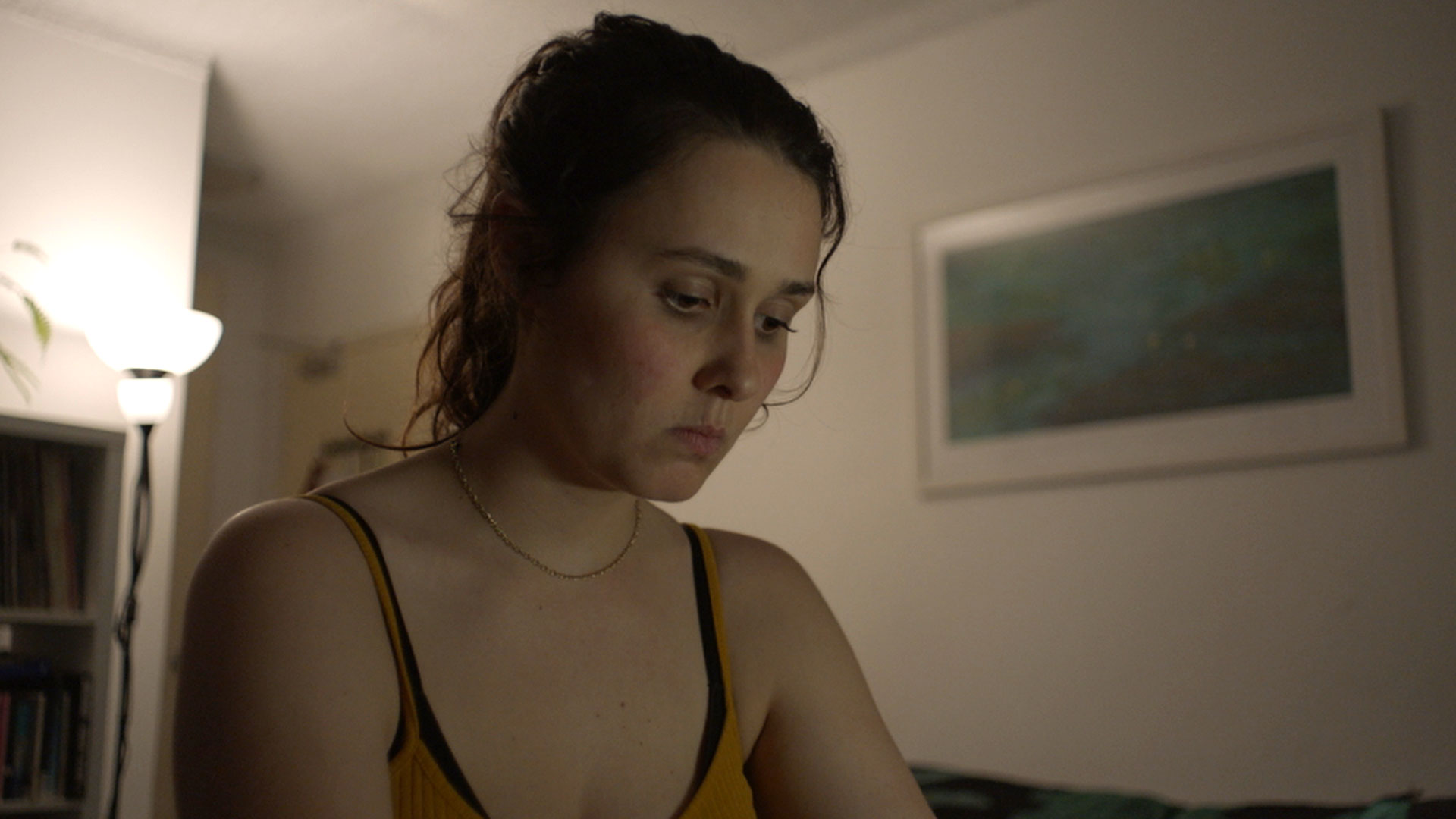
“Magic can happen sometimes if you just keep rolling – there’s an unpreparedness to it that can bring out amazing things.”
If Angelfish suggested that Dane McCusker was a director to watch, The Complex has proven that he is a director to admire. But don’t be fooled, as the title hints, this is not an easy watch. There’s no jaw-dropping cinematography, elaborate cutting or flashy SFX either. It’s not even particularly original. In fact, the storyline in The Complex is so familiar, that if you’re a woman over the age of 12 and living in the Western world, the chances are you will have experienced something very similar at some point in your life. Beautifully embodied by the film’s co-producer Jessica Murphy, Charlotte’s trembling world threatens to collapse as she wrestles with the unwanted attention and the invasion of her personal and emotional space by her new neighbour. The 15 minute psychological drama blends fear, pride and doubt into an increasingly uncomfortable watch and one which has sparked an important conversation and divided opinions on the takeaway amongst its online audience. We invite you to join our conversation with McCusker as the director discusses gender bias, reveals why The Complex was a project close to his heart and sets the record straight. [read here]
Michelle Brand Explores the Connection Between Animation Theory and Philosophies on Time in Short Film ‘Any Instant Whatever’
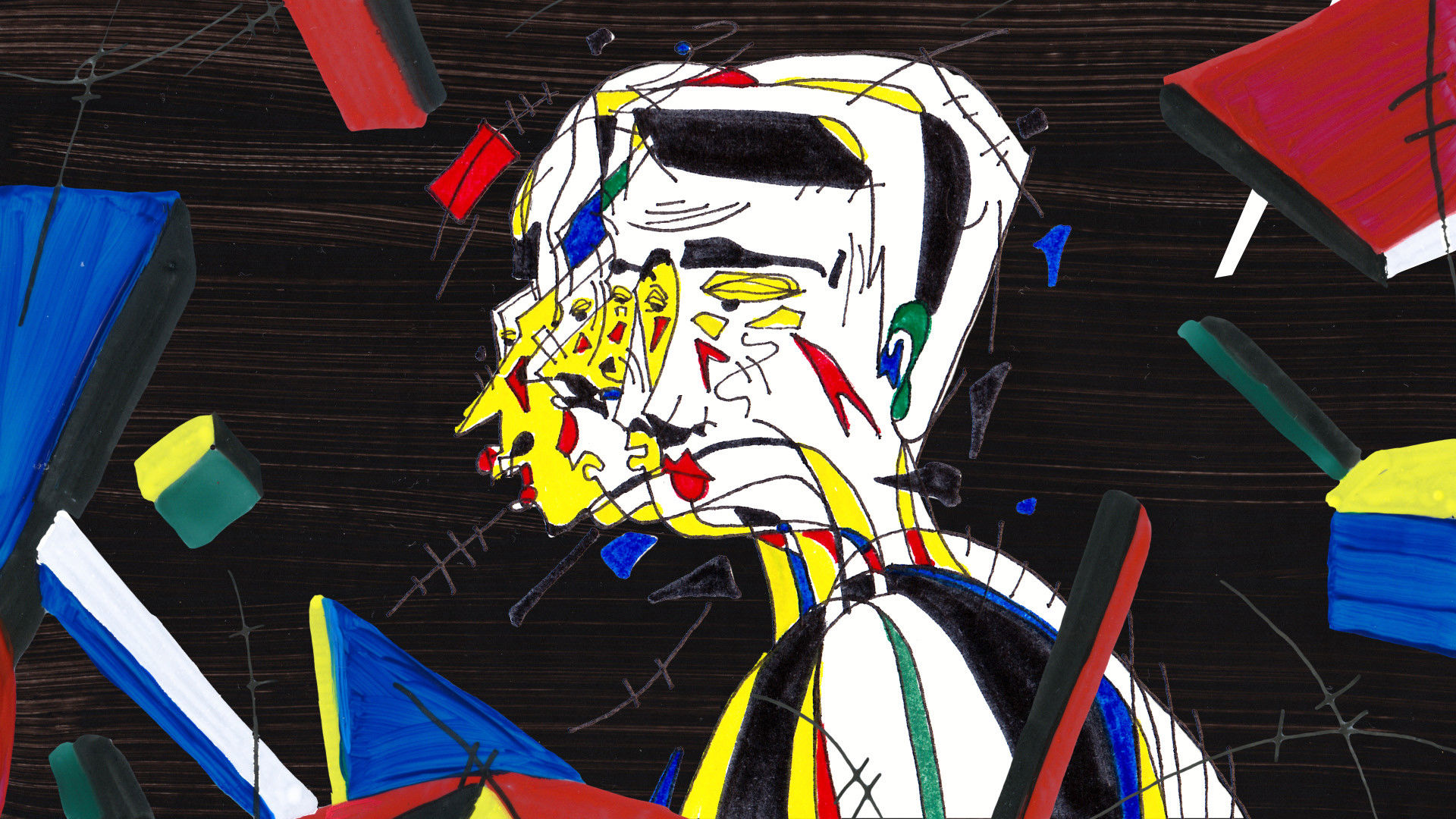
“If everything is constantly changing, where am I at any moment in time?”
We’ve seen a wide range of themes/subjects tackled in short film (the freedom the format allows is one of the main things I’ve always loved about shorts), but I’m not sure I’ve seen anything as ambitious as Michelle Brand attempting to “discuss and visualise our perception of time” in her five-minute Royal College of Art grad film Any Instant Whatever. A hypnotic, mesmerising short, which played Annecy, Encounters and Palm Springs in 2020, narratively Brand’s short focuses on a man and a falling chair, but thematically it aspirations are much grander. Eager to discover what influenced such a philosophical approach to her filmmaking, Brand joins us to discuss non-existent happenings, philosopher Henri Bergson and why animation was the perfect medium to explore theories of time, movement and change. [read here]
If you too would like to see your work featured on DN then submit your film now.

